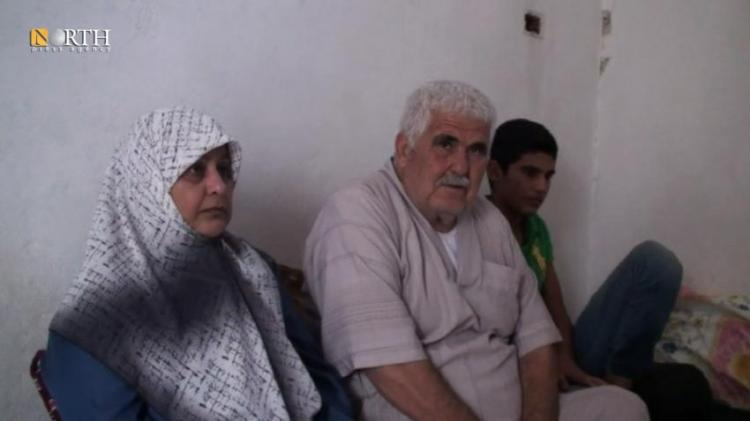Aleppo – North-Press Agency
After More than two years of the displacement of the last batch of residents from al-Foa and Kafriya in the Idlib countryside, about 10,000 displaced families in the Marjeh area in Aleppo are still suffering from punishing life conditions due to youth unemployment and the absence of any fixed income for these families, who left everything they owned in the only two Shiite towns in Idlib governorate.
Thousands of families were subjected to a suffocating siege imposed by armed opposition groups which displaced large numbers of them in 2018 amid Syrian government promises to secure adequate living conditions for the displaced families.
Abu Hassan al-Ajmi, a 60-year-old IDP from al-Foa who is currently living in the Marjah neighborhood of Aleppo, told North-Press that they received many promises to provide a better life, “but we were shocked when we reached Aleppo; we were put in abandoned government center in Jibreen to the east of Aleppo without any care or even adequate food. "
He added: "After two weeks, we were moved to homes that were prepared in haste or were equipped with simple living facilities in the Marjeh area. Government promises were not fulfilled, and we are still waiting to return to our homes."
Al-Ajmi explained that they were forced into this reality due to the extremely harsh conditions they lived under during the siege on both al-Foa and Kafriya. "We lost a number of our children and elders due to the siege and the lack of medical and health services. Our exit from al-Foa and Kafriya was not our will, but a result of the pressure of the siege and escape from death, either by starvation or bombing."
Zain al-Abidin al-Masri, an IDP from the town of Kafriya who lives in Marjeh, said that he lost his job and the agricultural project that he depended on for his livelihood.
He added: "Today I am unemployed. I tried to work selling vegetables, but the loss was my share. We are all looking for a way to return to Kafriya and al-Foa. There is no work, decent living, or rest in our homes."
Haj Muntazar (a pseudonym), a supervisor of the dwellings inhabited by al-Foa and Kafriya IDPs in the Marjah area, said that they equipped large generators to supply the residences with electricity for 12 hours per day, because the region lacked electricity.
He added: "We provide families with monthly aid, which is a food basket and sums of money for families with no income. We are trying, within the available capabilities, to provide some life necessities for them."

